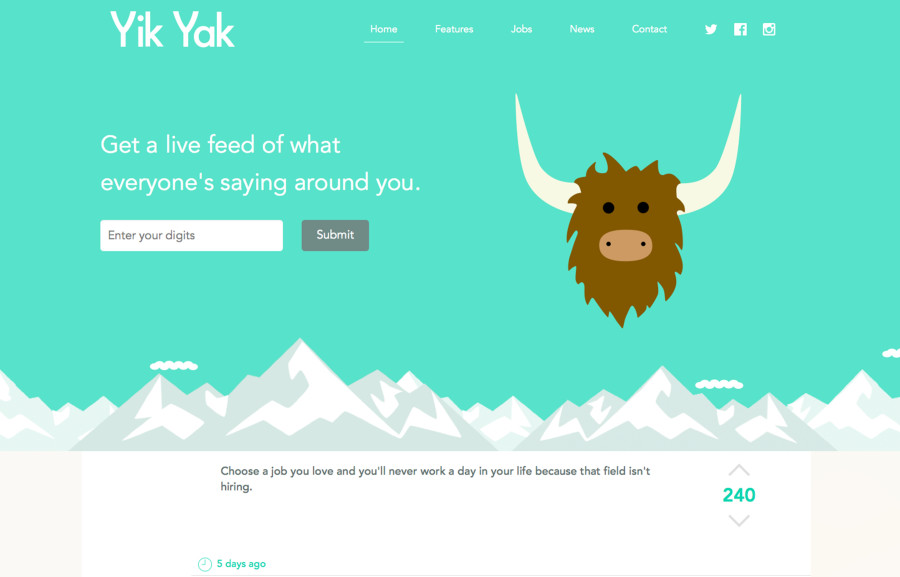Facebook, Instagram and Twitter are all tools that market to a school based on the demographic’s of the student body. The newest app making noise around campuses nationwide is called Yik Yak. Its purpose is to be yet another anonymous channel for people post whatever they want. The idea seems harmless but the results have been appalling.
Cyber bullying is already a widely concerning issue that has resulted in self-harm and suicides among victims. With an app as nameless as Yik Yak, it gives bullies extended amount of surface area without the fear of getting caught. Concurred, the removal of these apps won’t permanently stop bullying, but that’s not a reason to continue adding fuel to the fire through anonymity.
“Experts are worried that one of the newest and fastest-growing smartphone apps is providing a cloak of anonymity to people sending texting messages, leading to bullying, taunting and threats of violence,” as reported by CBS.
Unfortunately, worrying is not going to solve the problem. The effects of this app are serious and the ability to be unrecognizable is being abused. As of recently, there have even been reports of two bomb threats in a high school in Massachusetts. How many school shootings do we need to learn a lesson?
Originally created for college campuses, Yik Yak has found its way to middle and high schools. The founders of the app have tried to find ways to limit the bullying by using GPS technology; they have worked with various districts to geofence the app. Currently, 85 percent of American middle and high school campuses have been blocked from using the app.
Of course, it’s the lack of filter that makes Yik Yak so entertaining. However, when will we have enough? It’s dangerous to keep an app that has facilitated bomb threats and ignored bullying around the nation. Why are people waiting for an accident to occur in order to take permanent measures?
In comparison to other schools, San Diego State has had a very different approach to the app. When looking through SDSU’s feed the overflow of posts are about smoking weed, rolling joints and getting wasted. However, when switching to universities such as Brigham Young University, posts are in the playing field of marriage proposals and the completion of missions. These indecent comments represent a school whether they are posted with bad intentions. How does this effect college hunting for potential students?
For future freshman, these apps are also a way to indulge and experience a little part of every school they have applied to. Social media is a direct method of communication and more recently, a direct way for campuses to reach out to potential students. Applications such as Yik Yak are likely to influence incoming freshman.
The idea of searching through lists of colleges used to be so genuine. Now, it’s centered around what schools are most popular on various social media sites. The lack of searching for colleges based on the best programs offered has decreased significantly.
“For universities competing to attract top students, it’s no longer enough to have a glossy brochure and a sleek website,” as reported by CNN. “Schools like Johns Hopkins are reaching out to engage with applicants on Facebook and Twitter.”
By understanding modern day applicants focus their research on what school they want on social media, universities have found a different and more effective way to connect with them. Although these methods are being carried out with great intentions, it doesn’t dismiss the purpose of the app as seen in the hands of a majority.
Strictly speaking, there is no other way to side step the fact that Yik Yak has become a platform filled with inappropriate comments and dangerous threats. Although there are the few people whose posts simply ask for homework help, how can we ignore the majority?
We can no longer overlook the facts and continue to support such an app. It’s time for the creators to reevaluate their application and find ways to promote a more civilized interaction between people.










